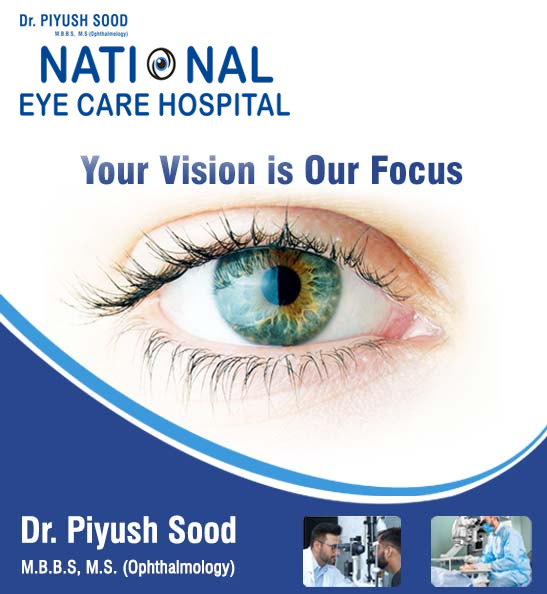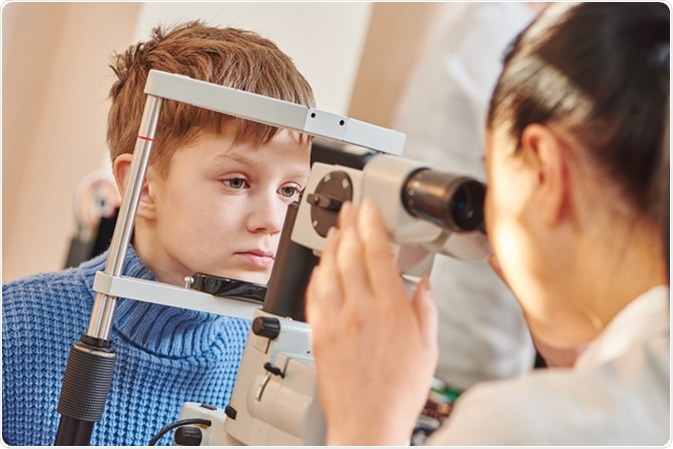Pediatrics in Andalusia: Compassionate Look After Growing Households
Wiki Article
Is Refractive Surgical Procedure Right for You? Factors to Consider for Better Eyecare
In the realm of eye care, the choice to undergo refractive surgical treatment is a substantial one that demands thoughtful factor to consider. As people seek clearness and freedom from the restrictions of corrective lenses, many variables come into play when identifying the suitability of such a treatment. From the details of one's eye health and wellness to the complexities of individual assumptions and everyday behaviors, each facet holds relevance in the more comprehensive landscape of refractive surgery candidacy. By assessing these essential elements with treatment and precision, a more clear path in the direction of informed decision-making arises.Eye Wellness Analysis
When thinking about refractive surgical treatment, a detailed eye health assessment is essential to analyze the viability of the procedure for each person. andalusia pediatrics. This evaluation entails a series of examinations and examinations performed by an eye care expert to figure out the total health of the eyes, the visibility of any kind of underlying problems, and the stability of the refractive errorThroughout the evaluation, various elements are taken into consideration, such as the client's case history, present eye prescription, corneal density, student size, and tear film high quality. These evaluations assist to identify any contraindications to refractive surgical procedure, such as corneal irregularities, cataracts, or untreated eye infections. In addition, the assessment aids to manage person assumptions relating to the potential end results of the surgery based on their unique eye features.
Ultimately, the eye health assessment is essential in ensuring the safety and security and efficiency of refractive surgical treatment, as it provides important insights right into the person's eye health standing and assists establish the most ideal therapy alternatives for attaining optimal visual end results. (eye doctors in andalusia)
Way Of Living Analysis
A comprehensive lifestyle assessment is important in figuring out the viability of refractive surgical procedure for a person's visual correction requirements. Way of living elements such as occupation, hobbies, and daily tasks play a vital role in the decision-making process regarding refractive surgery. For circumstances, individuals with professions that entail a high level of exercise or exposure to environmental components might have different aesthetic needs contrasted to those with less active workdesk work. Recognizing exactly how a person's way of life might affect their vision post-surgery is essential for managing expectations and ensuring optimum outcomes.Additionally, way of life behaviors such as sporting activities engagement, outdoor tasks, or perhaps skincare routines can affect the healing procedure and total success of refractive surgical procedure. As an example, individuals that participate in contact sporting activities may require to take added precautions to shield their eyes during the healing period. Furthermore, individuals with substantial sun exposure may need added post-operative like stop problems. By performing a comprehensive way of living assessment, eye care professionals can tailor their recommendations and treatment plans to fulfill the one-of-a-kind requirements of each patient, eventually bring about enhanced visual results and contentment.
Expectation Placement

Individuals need to comprehend that while lots of people achieve 20/20 vision or much better complying with refractive surgical treatment, some might still call for glasses for certain activities like analysis or driving at night. Taking care of these assumptions assists avoid dissatisfaction and dissatisfaction post-surgery, leading to a more favorable general experience for the patient.
Danger Evaluation

Factors that might boost the danger of issues include age, andalusia pediatrics specific clinical problems like autoimmune illness, unstable vision prescription, slim corneas, and impractical patient assumptions. In addition, selecting a competent and skilled cosmetic surgeon, following pre and post-operative care directions diligently, and revealing any kind of relevant clinical history can help minimize risks.
To lessen the probability of issues, ophthalmologists carry out comprehensive pre-operative examinations to determine any type of contraindications to surgical procedure. They additionally go over the prospective dangers and advantages with people during the examination procedure. By involving in open communication and shared decision-making, both the person and the ophthalmologist can function together to figure out if refractive surgery is the best option based on individual danger accounts and desired end results.
Appointment Importance
Considering the essential duty of notified decision-making in assessing threats and prospective complications in refractive surgical procedure, the consultation procedure holds substantial value in directing individuals towards optimum results. During the appointment, the eye doctor assesses the person's eye health and wellness, refractive mistakes, and total suitability for surgical treatment. This preliminary evaluation is important in figuring out one of the most suitable treatment for each and every person, thinking about aspects such as corneal density, pupil size, and existing eye problems.In addition, the consultation acts as a possibility for clients to review their assumptions, issues, and any type of concerns they might have relating to the surgery. Clear communication in between the specialist and the patient is important to ensure reasonable expectations and a comprehensive understanding of the possible dangers and benefits included.
Furthermore, the consultation permits the surgeon to describe the different medical alternatives available, their respective results, and the post-operative care needed. This extensive discussion encourages clients to make well-informed choices regarding their eye treatment, resulting in far better satisfaction and outcomes post-surgery.
Final Thought
To conclude, individuals considering refractive surgery must go through a comprehensive eye health assessment, evaluate their lifestyle routines, straighten their expectations with possible end results, examine the associated threats, and focus on appointments with eye treatment experts. These elements play an important function in identifying the viability of refractive surgical treatment for every individual, ensuring ideal outcomes and fulfillment with the treatment.Patients considering refractive surgery commonly have high expectations regarding the outcomes, anticipating ideal vision without the requirement for glasses or call lenses. While refractive surgical procedure can substantially enhance vision and minimize dependence on visual help, it is crucial for people to comprehend that results might vary based on private factors such as the level of refractive error, corneal density, and overall eye wellness.
By involving in open communication and shared decision-making, both the person and the eye doctor can work together to establish if refractive surgical treatment is the best selection based on private risk accounts and desired results.
Thinking about the critical duty of notified decision-making in evaluating risks and possible issues in refractive surgical procedure, the consultation procedure holds significant value in directing individuals in the direction of ideal outcomes. Throughout the examination, the eye doctor evaluates the individual's eye health, refractive errors, and overall suitability for surgery.
Report this wiki page